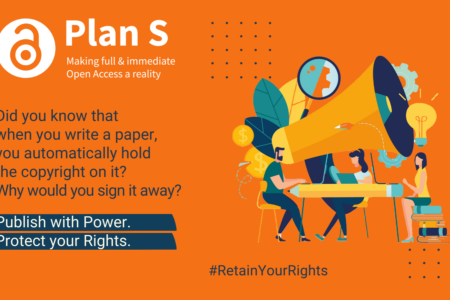Copyright and the European Commission Policy for Research
An overview of recent studies, policy, and legislation surrounding copyright and research.
Research is being carried out in universities, resulting in output such as data and publications.
Data may contain content that is still in copyright, such as data generated through text and data mining. Researchers and universities wish to make their data FAIR and therefore need to publish their data, yet they cannot do so without the permission of the copyright holder.
Researchers publish their articles in journals and are thereby forced to assign the copyright on these articles to the publisher. The researchers as authors are not remunerated for this output, nor are the universities as their employers. Other researchers provide peer review, again without remuneration. All profits go to the publishers and researchers lose the copyright to their published works.
These issues have raised the interest of EU policymakers. In November 2021, the European Commission (EC) published its European Research Area Policy Agenda, an overview of its actions for the coming period 2022-2024. It was published by the EC Directorate-General for Research and Innovation, responsible for EU policy on research, science and innovation. The Policy Agenda consists of four priority areas, the first being ‘Deepening a truly functioning internal market for knowledge’ containing nine points of interest. The 2nd point of interest is ‘Proposing an EU copyright and data legislative and regulatory framework fit for research.’
In order to propose new copyright and data legislation, the EC commissioned two studies by renowned European copyright experts to analyse current EU copyright legislation and recommend necessary amendments, if any.
This has resulted in (1) Study on EU copyright and related rights and access to and reuse of data by Prof.Dr. Martin Senftleben, University of Amsterdam and (2) Study on EU copyright and related rights and access to and reuse of scientific publications, including open access by Dr. Christina Angelopoulos, University of Cambridge.
Interestingly, both studies bring out that there is a potential conflict between copyright and other fundamental rights stated in the Charter of Fundamental Rights of the European Union (CFR). While copyright is mentioned in article 17.2 of the Charter, other fundamental rights such as freedom of expression and information (art. 11), freedom of the arts and sciences (art. 13) and the right to education (art. 14) need to be considered also. More often than not, copyright is considered a right, while the other three rights are considered to be mere ‘exceptions’ to copyright.1 The Court of Justice of the European Union (CJEU) has made it clear in more than one of their decisions that a fair balance must exist between copyright and other (competing) fundamental rights.2
As mentioned in the beginning of this blog, data may contain content that is still in copyright. Yet both researchers and universities want these data to be published in open access. This is where fundamental rights clash. Which right will prevail? The rights of the copyright holder or the right to freedom of science? At this moment copyright prevails, and researchers may not publish this kind of data in open access. Copyright is considered a right to property (art. 17 CFR), but this right is not absolute. This right may be limited as long as the limitation is provided for by law and leaves the essence of copyright intact.3 So it is possible for the EU to propose new, and amend existing, legislation and thus make it possible for researchers to publish in open access their data with copyrighted content.
Research funders (as well as universities themselves) more and more require publishing in open access and sometimes publishing in immediate open access, in accordance with Plan S. Angelopoulos emphasizes in her study that funders must communicate their terms regarding publishing policy clearly, and researchers must read these terms as well as their publication agreements carefully,4 in order to avoid problems.
On a legislative level, the study considers introducing an EU-wide Secondary Publishing Right (SPR). Secondary Publishing Right refers to the right to republish in open access all scientific and scholarly publications resulting from publicly funded research, after its first publication. This republishing can be with or without an embargo.5 While Angelopoulos is cautious examining this option, she concludes that an EU SPR could prove a valuable way to ‘operationalise’ the research exception, decoupling its enjoyment from right holder controlled access restrictions.6
On the level of non-legislative measures, the study considers Rights Retention Strategies (RRS). What does RRS imply? It has to do with contract law. In (most if not all) national law rights given away in an earlier contract concluded with party A cannot be given away in a later contract concluded with party B. Or rights given away in a later contract are limited by the rights given away in an earlier contract. Applying this law principle, researchers may conclude a non-exclusive license to the AAM (Author Accepted Manuscript) version of their publications to their university and/or funder.7 This AAM version will be published in open access in their repositories from the moment of publication. Because this non-exclusive license precedes the contract concluded with the publisher, contract law determines that the earlier non-exclusive license with the university takes precedence over the exclusive license that the employee is forced to conclude with the publisher. And therefore, the publisher cannot claim the complete exclusivity of the copyright to the publication: it is exclusivity minus the right of the university to publish the AAM version in its repository.
But what if a researcher works at a university that does not have RRS as their policy? What to do then? That will be discussed in a future blog.
Some universities may even go as far as to claim the copyright to their employees’ publications. Angelopoulos does not favour employers (universities) claiming copyright in their researchers’ scientific and scholarly output. While such claims could prevent researchers transferring copyright to publishers and make RRS easier, she fears this course of action is hard to reconcile with the academic freedom universities are committed to respect. She therefore advises universities not to claim full ownership of their researchers’ copyright, but claiming only the rights necessary to achieve Open Access publication.8
Why are these studies important for (Dutch) universities? While universities have already taken measures to make their researchers’ output (i.e. data and publications) as open as possible, they cannot do it alone. Legislation is required to make sure copyright does not prevent research output from being disseminated to the interested academic community (for purposes such as research validation) and to the public in general. As the EC puts it, “EU legislation in the field of copyright … can have a deep impact on access to data resources for scientific research and the availability of data resulting from publicly funded research. To establish a copyright … framework that offers appropriate data access and reuse opportunities for scientific research, it is necessary to identify potential barriers and challenges that may arise from EU copyright … legislation and corresponding rights management.” The same applies to the reuse of scientific publications. Both studies have identified these potential barriers and have advised ways to overcome them. It is now up to the European Commission to propose legislation to remove these barriers.
1) See also LERU's opinion on the matter. As a member of the LERU Data Expert Group the author contributed to the LERU statement.
2) Senftleben, page 11-12 and Angelopoulos, page 52-53.
3) Senftleben, page 11.
4) Angelopoulos, page 28.
5) See https://www.coalition-s.org/about/
6) Angelopoulos, page 5.
7) At the moment of writing, universities apply this to short works such as articles, book chapters and such, rather than to books (monographs).
8) Angelopoulos, page 54.





